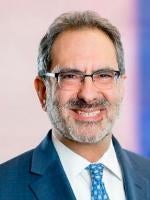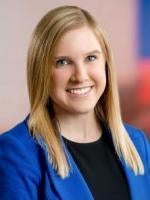In the midst of the pandemic emergency, the Department of Health and Human Services Office of Inspector General (OIG) issued a stern warning about in-person educational programs for health care professionals (HCPs), known as “speaker programs.” The OIG’s Special Fraud Alert (Alert) highlights what it deems the “inherent fraud and abuse risks” associated with the offer, payment, solicitation, or receipt of remuneration related to speaker programs by pharmaceutical and medical device companies. The OIG expressed that it is skeptical of the educational value of such programs, and thus the Alert sends a clear signal that such programs will undergo intense scrutiny under the federal Anti-Kickback Statute (AKS). OIG is using the pandemic as an opportunity to caution the pharmaceutical and medical device industry to limit or eliminate in-person speaker programs once such programs are able to resume.
The OIG describes speaker programs as company-sponsored events where HCPs give a presentation to other HCPs about drug or device products, or a disease state, on behalf of a company. From the drug and device company perspective, speaker programs serve the purpose of permitting HCPs to “participate in company-sponsored speaker programs in order to help educate and inform other health care professionals about the benefits, risks, and appropriate uses of company medicines.” Both the drug and device industry groups have long recognized that speaker programs are important educational tools and have recognized that compliance guidance is important because they involve remuneration to HCPs who typically prescribe or use the company’s drugs or devices. However, the OIG’s concern is that there is a high inherent risk that one purpose of speaker programs is to induce referrals by providing remuneration to speakers and attendees which could “skew their clinical decision making.”
As many of our readers are well aware, the AKS is a criminal statute prohibiting the knowing and willful payment or offer of “remuneration” to induce or reward patient referrals involving items or services reimbursed by federal health care programs (e.g., drugs, devices, or health care services reimbursed directly or indirectly by the Medicare, Medicaid, or TRICARE programs). Remuneration is defined as anything of value, including meals, hotel stays, entertainment, travel, excessive compensation, or other benefits. Whether a remuneration arrangement is compliant under the AKS depends on the facts, circumstances, and intent of the parties. If the requisite intent is present, both parties to the remuneration – the party making the payment and the one receiving it – are potentially subject to criminal, civil, and administrative enforcement actions.
Although there have been many enforcement actions involving specific speaker programs alleged to violate the AKS, OIG now indicates in the Alert that it is skeptical about the educational value of any speaker programs. According to the Alert, within the last three years, HCPs have been paid upwards of $2 billion by drug and device companies for speaker-related services. The Alert contends that many audience members of these programs “have no legitimate reason to attend,” and thus HCPs presenting and/or attending these programs may be subject to increased scrutiny.
In the Alert, the OIG explains that its view is based on OIG and Department of Justice investigations involving drug and device companies’ speaker programs, which suggest that “one purpose of the remuneration to the HCP speaker and attendees is to induce or reward referrals . . . studies have shown that HCPs who receive remuneration from a company are more likely to prescribe or order that company’s products.” OIG argues that there are alternative ways for HCPs to obtain information about drug and device products or disease states that do not involve speaker programs, such as through online resources, product package inserts, third-party educational conferences, medical journals, and more.
The Alert provides some characteristics, either taken separately or together, that may indicate when a speaker program arrangement violates the AKS.
- The company sponsors speaker programs where little or no substantive information is actually presented;
- Alcohol is available or a meal exceeding modest value is provided to the attendees of the program (the concern is heightened when the alcohol is free);
- The program is held at a location that is not conducive to the exchange of educational information (e.g., restaurants or entertainment or sports venues);
- The company sponsors a large number of programs on the same or substantially the same topic or product, especially in situations involving no recent substantive change in relevant information;
- There has been a significant period of time with no new medical or scientific information nor a new FDA-approved or cleared indication for the product;
- HCPs attend programs on the same or substantially the same topics more than once (as either a repeat attendee or as an attendee after being a speaker on the same or substantially the same topic);
- Attendees include individuals who don’t have a legitimate business reason to attend the program, including, for example, friends, significant others, or family members of the speaker or HCP attendee; employees or medical professionals who are members of the speaker’s own medical practice; staff of facilities for which the speaker is a medical director; and other individuals with no use for the information;
- The company’s sales or marketing business units influence the selection of speakers or the company selects HCP speakers or attendees based on past or expected revenue that the speakers or attendees have or will generate by prescribing or ordering the company’s product(s) (e.g., a return on investment analysis is considered in identifying participants);
- The company pays HCP speakers more than fair market value for the speaking service or pays compensation that takes into account the volume or value of past business generated or potential future business generated by the HCPs.
The types of conduct enumerated by the OIG do constitute long-recognized risk factors, and are contrary to the codes of conduct of the drug and device industries. However, the OIG questions whether any speaker program can be compliant with the AKS and its safe harbors. This is extremely noteworthy for companies that have designed and implemented speaker programs in compliance with the AKS and its safe harbors, and industry codes of conduct.
OIG’s Alert warns that despite a pandemic, in-person speaker program-related remuneration to HCPs continues to pose a risk. OIG anticipates that such risks will become more pronounced once in-person speaker programs resume. With alternative methods of disseminating educational and informative materials, the Alert urges pharmaceutical and medical device companies to reassess the need for in-person speaker programs once in-person events return.
OIG has issued only a limited number of special fraud alerts. Typically, such alerts were followed by a series of enforcement actions on the related topic. Whether its analysis is correct or not, it is advisable for HCPs and the drug and device industry to heed OIG’s warning that speaker programs will be under intense scrutiny.





 />i
/>i

